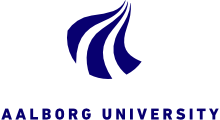Innovation, Knowledge and Economic Dynamics (Economics)

Innovation, Knowledge and Economic Dynamics (MIKE-E) at Aalborg University is a two-year fulltime international MSc specialization programme for Degree Students and Guest/Exchange Students. The MIKE-E programme leads to a Master Degree in Economics with specialization in Innovation, Knowledge and Economic Dynamics. MIKE-E enrolls both Danish and international students.
The programme focuses on the interaction between knowledge, innovation and economic dynamics in a world characterized by globalization, rapid change and uncertainty. The programme gives the students an opportunity to enhance their knowledge and analytical capability to make profound and reflective economic analyses and the capability to define and implement sustainable strategies in relation to knowledge and innovation.
A FEW EXAMPLES ILLUSTRATE TOPICS TO BE STUDIED
The main focus of the programme is the interplay between knowledge, innovation and economic evolution. The following topics are addressed during the programme:
- Strategies and framework conditions for the development of firms and industries
- Analyses of ‘industrial dynamics’, firms, industries, learning processes
- Growth, trade and globalization of firms, industries and economies
- Innovation management and knowledge management in relation to entrepreneurship and intrapreneurship
- Technology – and innovation strategies
- Methods for studies of firms, industries, countries
And a few concrete research questions:
- What role does knowledge play for economic development?
- How is knowledge diffused in the economy?
- How do different types of firms organize their innovation activities?
- Globalization as a challenge for the Danish innovation system?
- How can further interaction between universities and industry be stimulated?
- How do industrial clusters emerge?
- What is the relation between innovation and sustainable development?
- What kind of policy is needed to stimulate sustainable innovation?
Na studia magisterskie mogą kandydować wszyscy, którzy ukończyli studia licencjackie lub inżynierskie (studia I stopnia), studia magisterskie lub studiują na ostatnim roku studiów I-stopnia. Studia, które planujesz powinny mieć zbliżony profil do tych obecnych lub ukończonych, ponieważ w procesie rekrutacji kluczowa jest ich zgodność programowa.
- Wykaz punktów ECTS – osoby, które są jeszcze w trakcie studiów, muszą załączyć wypis punktów ECTS, w którym będzie wykazane, jakie przedmioty były realizowane na studiach oraz ile punktów za nie otrzymano.
- Dyplom ukończenia studiów licencjackich lub inżynierskich – jeśli jesteś absolwentem wyższej uczelni, nie potrzebujesz wypisu, wystarczy załączyć dyplom ukończenia studiów wraz z suplementem (w języku angielskim lub oryginał z tłumaczeniem)
Wyniki z testu z języka angielskiego należy przesłać do 31 lipca. Wraz z aplikacją musisz koniecznie przesłać certyfikat lub potwierdzenie zapisania się na honorowany przez tą uczelnię test językowy - w potwierdzeniu musi być Twoje imię, nazwisko i termin, w którym będziesz zdawać test.
Spełnienie wymagań w zakresie języka angielskiego można udokumentować w następujący sposób:
IELTS – 6.5
TOEFL – 88
A Bachelor degree in Economics. Alternatively students with a bachelor degree in another filed combined with significant coursework in economic analysis or with some relevant practical experience can be enrolled based on an individual assessment.
JOB AND CAREER
With a Master degree in Innovation, Knowledge and Economic Dynamics (MIKE-E) you will get a specific and profound knowledge about how knowledge is produced, diffused and used. You will have obtained a specific capability to analyze dynamic processes and to find relevant solutions to essential problems.
The most important competences in the future will be knowledge, problem solving skills, business understanding, the ability to create, use, and manage networks, flexibility and innovation, and service orientation. As a graduate from the Master programme Innovation, Knowledge and Economic Dynamics, you will gain valuable competences.
Typical job opportunities are in firms, national and international organizations, and regulatory bodies where analytical work related to regional, national and international framework conditions and strategies for industrial and economic development are in the centre.
THE MIKE-E PROGRAMME PREPARES YOU TO UNDERTAKE A CAREER IN
The private sector (larger companies, banks and financial institutions, or consultancies)
Regulatory bodies at the local, regional, national, and international level (municipalities, regional bodies, Ministries of Trade, Industry, Science and Technology, etc.)
National or international organizations (for instance labour market organizations, industrial associations, European Commission, OECD, the World Bank)
National or international research institutions and universities (as a Ph.D.-student or research fellow)
